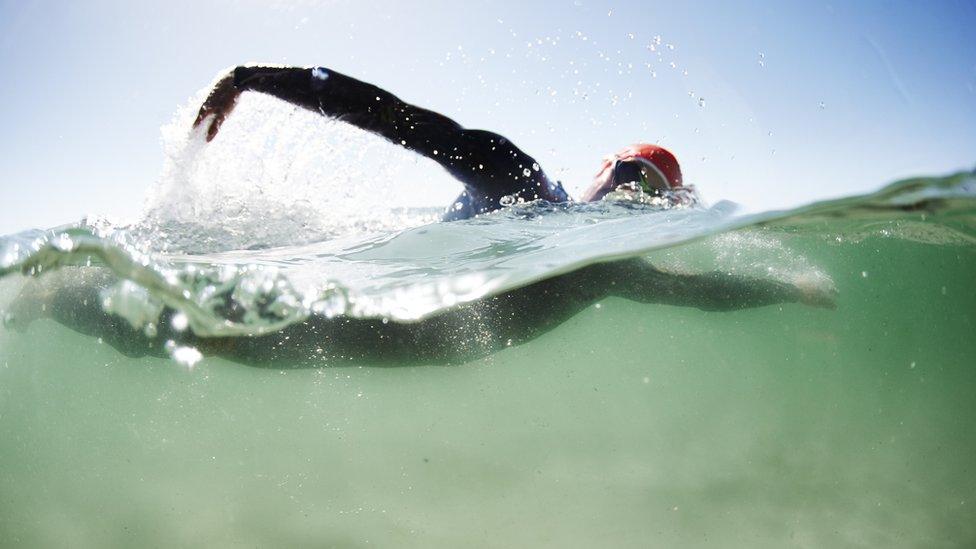Cold water swim 'obliterated' woman's short-term memory
- Published
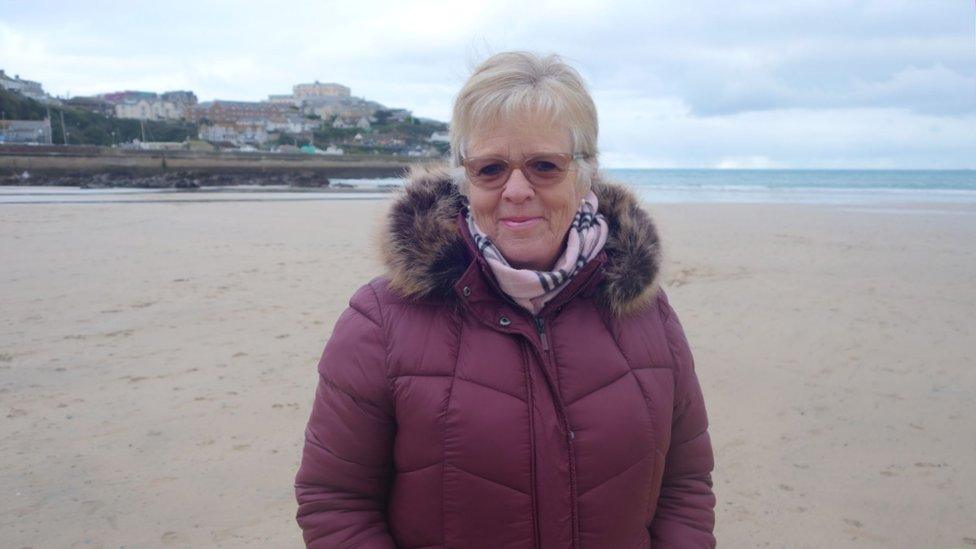
Sue Hodge says people should not be put off sea swimming but wants them to know the risks
A woman who lost her short-term memory after swimming in the sea last month has said people should not be put off.
Sue Hodge, 66, has no memory of going in the sea or even driving to Newquay in Cornwall for a swim on 18 November.
Her friend noticed she appeared "vacant" and confused after the short swim and called an ambulance to take her to hospital.
Her next memory was seven hours later and medics told her the cold water had triggered transient global amnesia, external.
Sea swimming has become increasingly popular during 2020 while indoor pools have largely remained closed.
A woman-only sea swimming group in Newquay had 25 members at the start of the year, and now has more than 2,000.
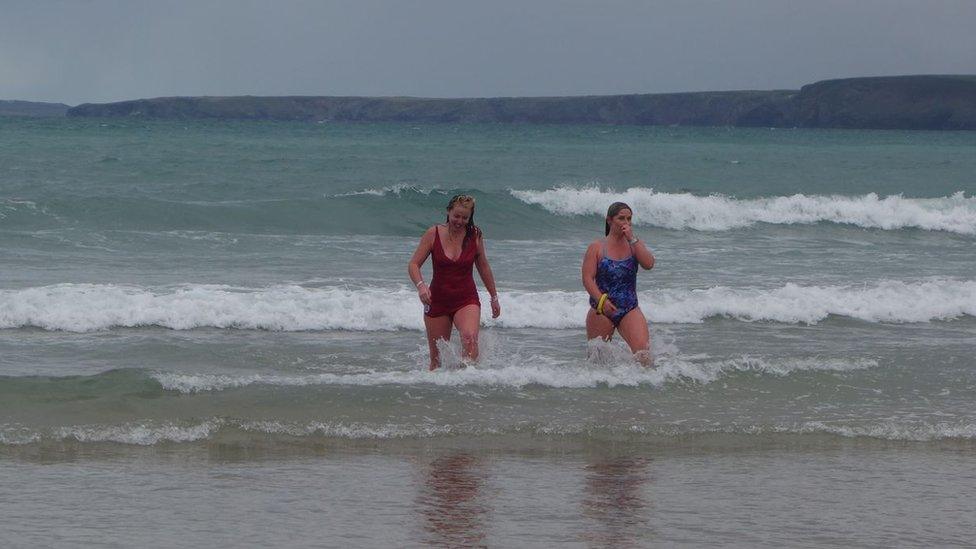
Sea swimming is known to have significant mental and physical health benefits
Mrs Hodge said: "We went swimming at about 16:00, and the next thing I remember is waking up in A&E at 23:00. The nurse told me I'd had an amnesic episode.
"My long-term memory was fine but I couldn't remember anything about what had happened. I couldn't remember even coming into Newquay for the swim, all of that was just obliterated, gone.
"The consultant who spoke to me said this can be caused through cold water, and so it must have been that which triggered it."
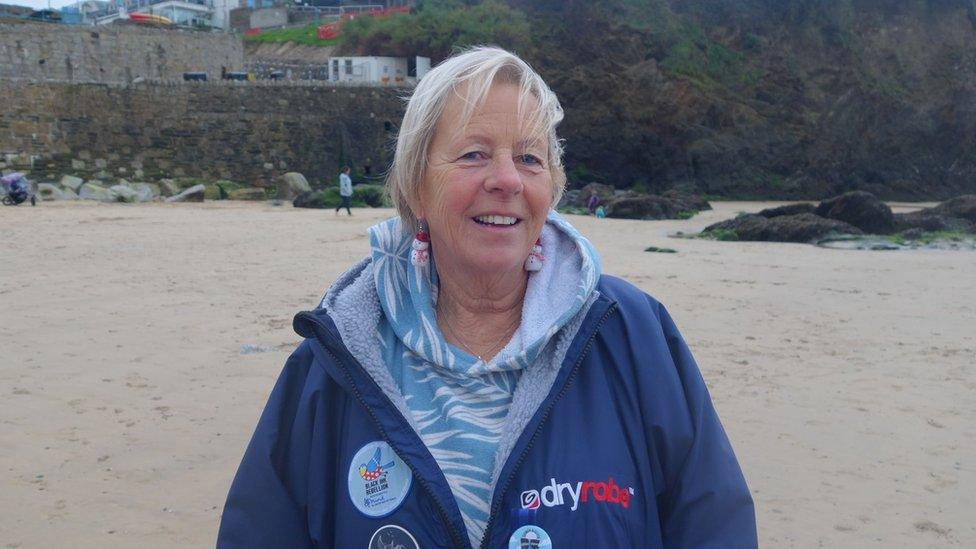
Sue Semley called an ambulance after becoming concerned for her friend
She said she would be avoiding the sea for now "because I would like for it not to happen again" but said that others "should still do it, because it is really good fun and the after-effects are great".
Mrs Hodge was swimming with her friend Sue Semley, who said: "She was just staring. I called her name and she was just staring and she didn't know where she was, and became increasingly agitated."
Mrs Semley and other swimmers in the group said they had never seen anybody react in this way to cold water previously.
Explaining what she enjoyed about swimming in the sea, Mrs Semley said: "I just love the way it makes you feel. The cold water makes you feel incredible and really sets you up for the day."
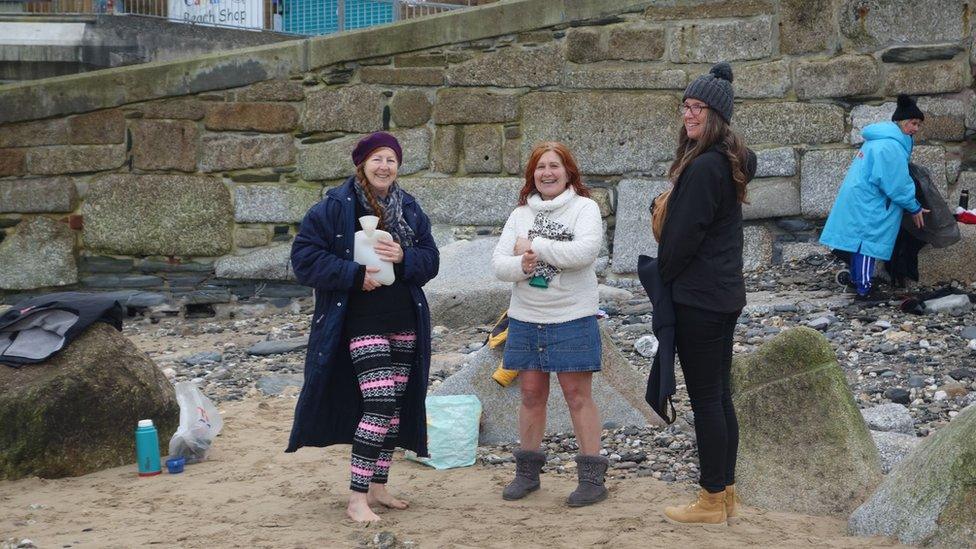
Swimmers are advised to make sure they can warm up quickly after getting out of the sea
Professor Mike Tipton, from the Extreme Environments Laboratory at the University of Portsmouth, said: "There's an enormous number of people now doing it (sea swimming).
"We are not trying to stop people because exercising is really important, but we must do it safely.
"We should realise that we are a tropical animal and want to be in 28 degree air and going into 10 degree water is probably the biggest stress you can pose on the body."
Allow X content?
This article contains content provided by X. We ask for your permission before anything is loaded, as they may be using cookies and other technologies. You may want to read X’s cookie policy, external and privacy policy, external before accepting. To view this content choose ‘accept and continue’.
The RNLI's key safety advice, external for taking a winter dip includes:
Never swim alone - always go with someone else to a familiar spot
Take plenty of warm clothes for before and after your dip, along with a hot drink to help you warm up again when you come out of the water
Wearing a wetsuit will help increase your buoyancy and reduce the chances of suffering cold water shock
Be seen - wear a brightly-coloured swim cap and consider using a tow float
Acclimatise to the water temperature slowly - never jump straight in
Stay in your depth and know your limits
If you or someone else is in trouble call 999 or 112 and ask for the Coastguard
- Published13 September 2018
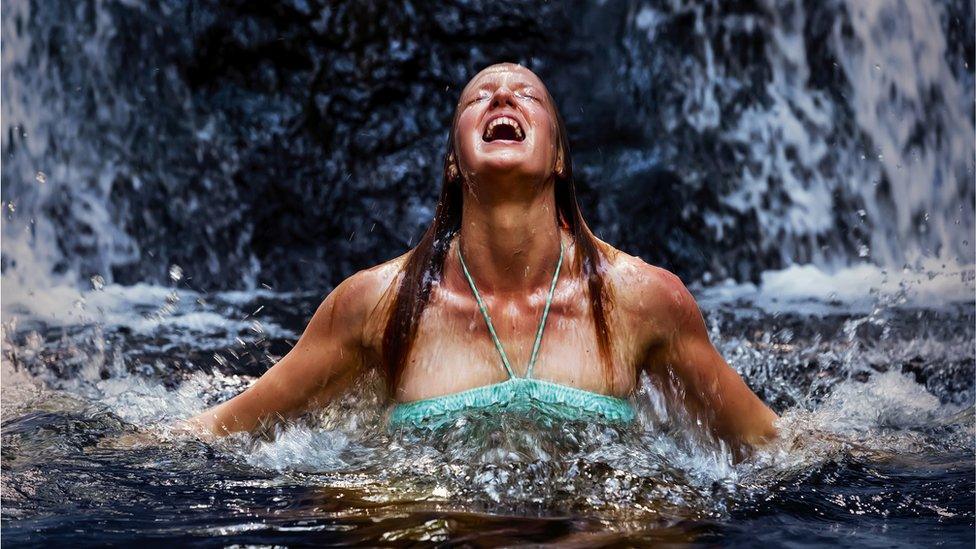
- Published19 October 2020
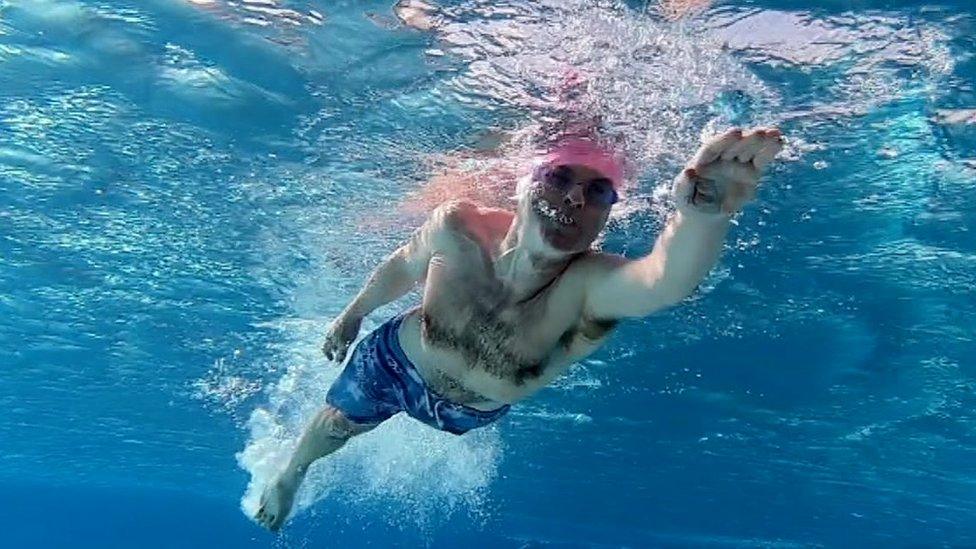
- Published24 August 2020
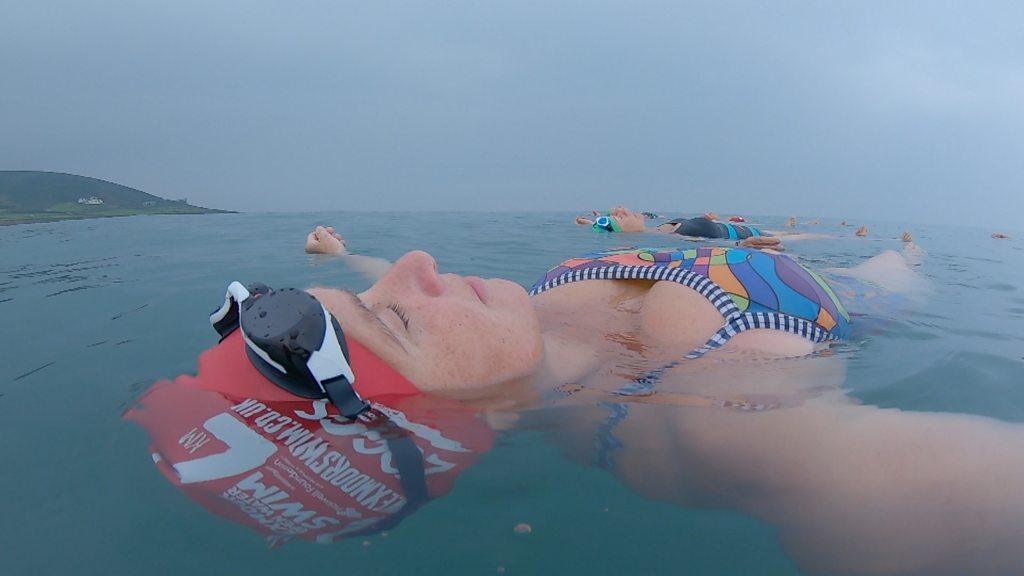
- Published13 February 2018
